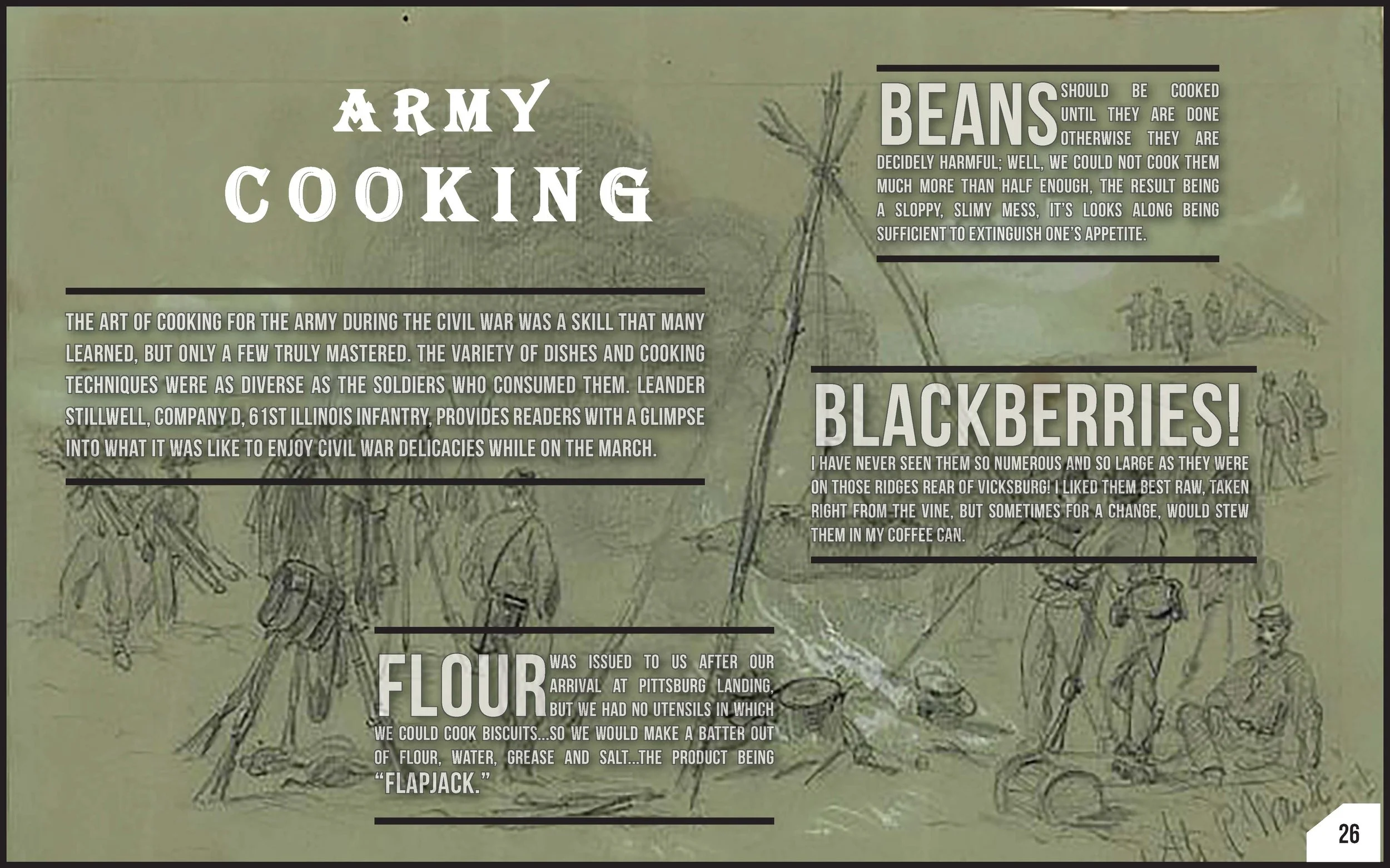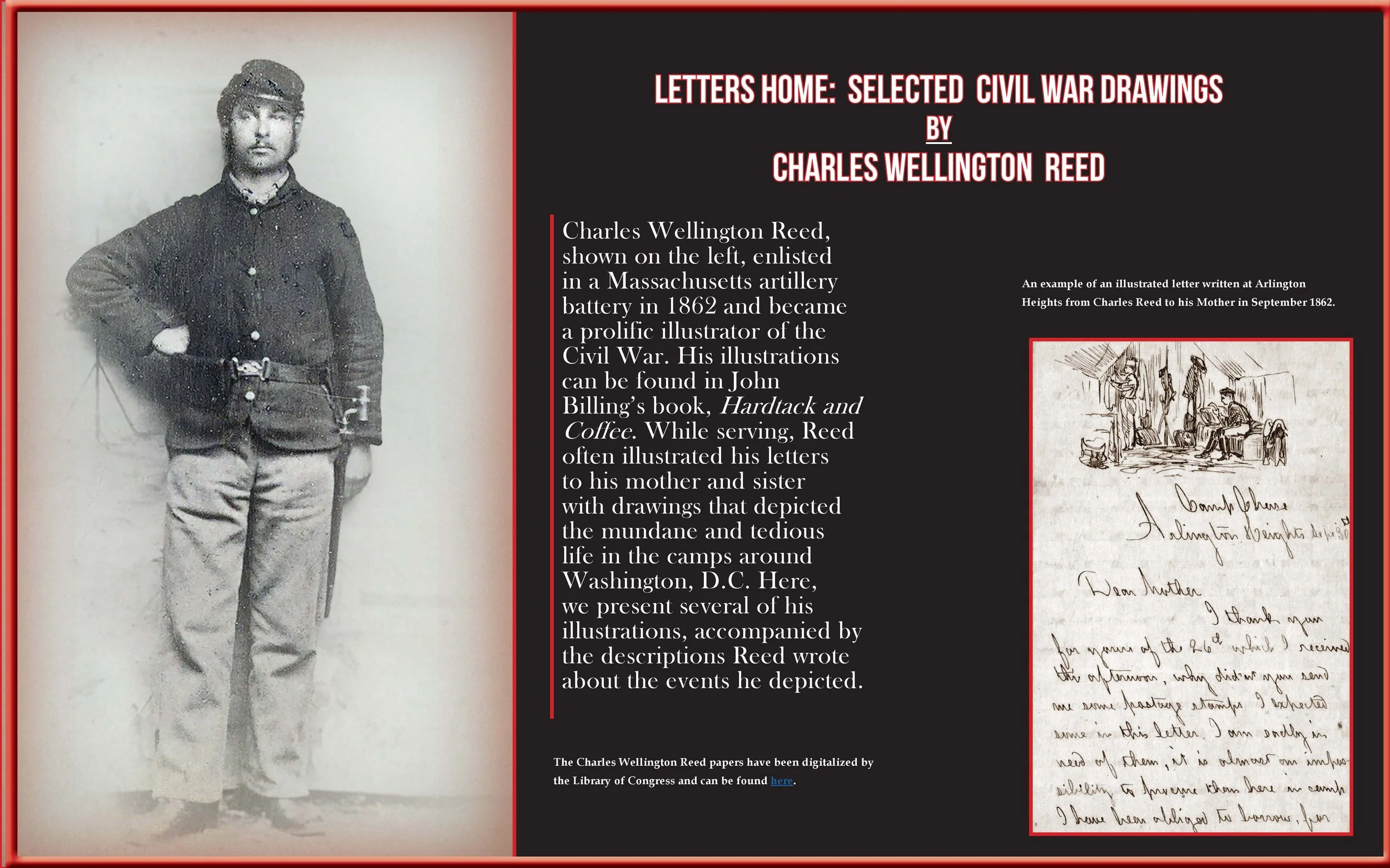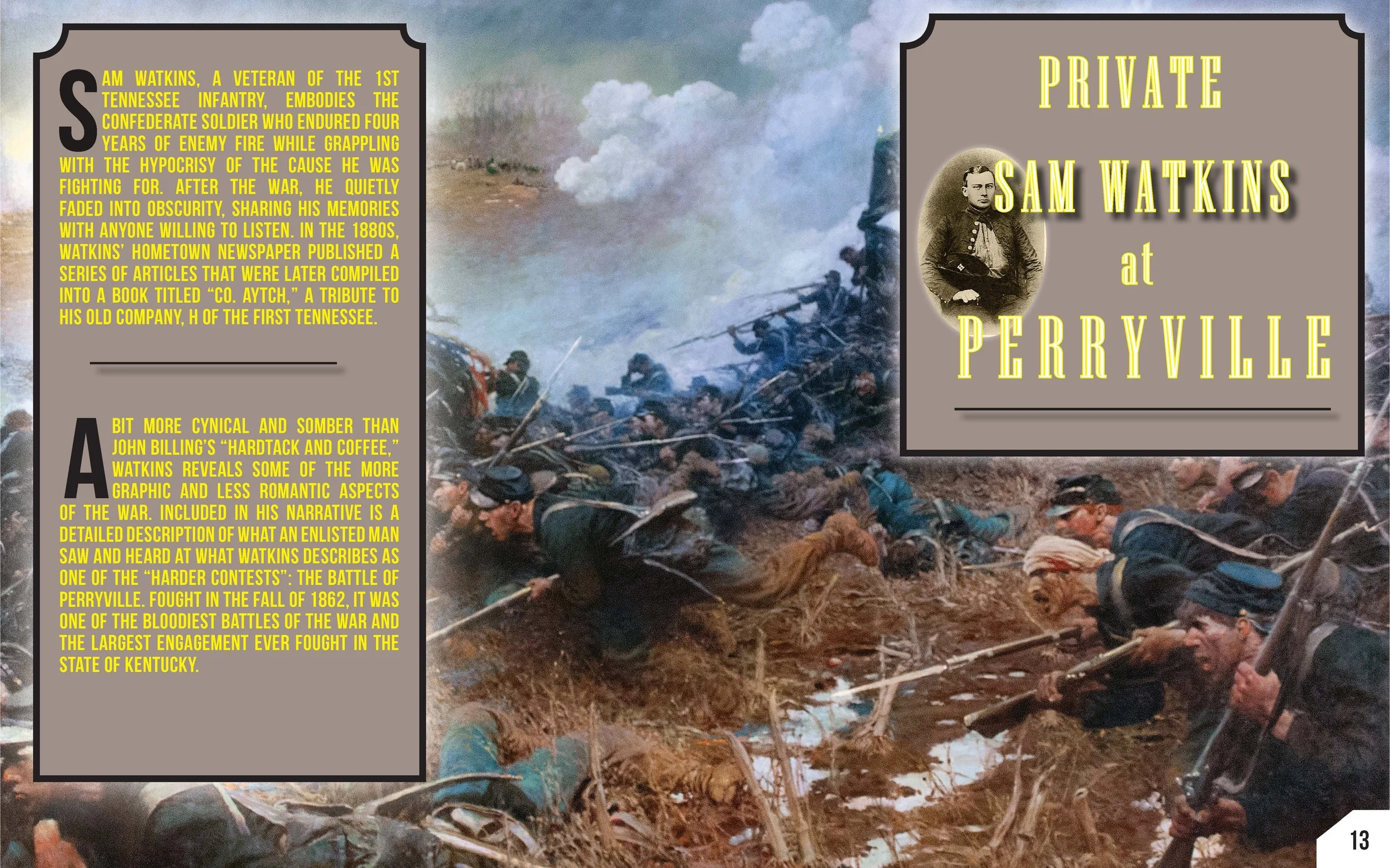
The Art of Army Cooking
The art of cooking was a skill that many learned, but few mastered. Leander Stillwell provides us with a glimpse of Civil War delicacies.
from The Story of a Common Soldier of Army Life in the Civil War, 1861 - 1865 , 1920

Letters Home: Selected Civil War Drawings by Charles Wellington Reed
Charles Reed often illustrated his letters to his mother and sister with drawings that depicted the mundane and tedious life of an artilleryman.
from The Charles Wellington Reed Papers (Library of Congress)

Private Sam Watkins at Perryville
Sam Watkins describes what he heard and saw at the Battle of Perryville, October 8, 1862, a battle he described as one of the “harder contests” of the war.
from Co. Aycht , 1882

Life In Tents: How Soldiers Passed the Time
A Massachusetts veteran describes what it was like to live with twelve other men in a Sibley tent and how soldiers passed the time.
from Hardtack and Coffee, or the Unwritten Story of Army Life , 1887

The ‘Historicus’ Account of the Battle of Gettysburg
In an attempt to manage the narrative of the events at Gettysburg on the afternoon of July 2, an anonymous letter appeared in the March 12, 1864, edition of the New York Herald, exaggerating and misinterpreting Dan Sickles' role in the battle.
from The New Yok Herald , March 12, 1864

Mr. Sickles Goes to Washington
In February 1864, the Joint Congressional Committee on the Conduct of the War called upon Dan Sickles who was eager to cooperate. During his testimony, the one-legged general presented his biased account of the events of July 2, 1863.
from Report of the Joint Committee on the Conduct of the War, 1865.

Sickles Seizes the Initiative, July 5, 1863
A staff officer recall the tale of when President Abraham Lincoln visited Dan Sickles’ sick bed on July 5, 1863.
from Lincoln and Sickles, 1910

“The Confederates Were Now Our Prisoners”: Grant At Appomattox
As Ulysses S. Grant faced his destiny with fate, suffering from the effects of throat cancer, he recalls the surrender at Appomattox through the eyes of a dying man.
from Personal Memoirs of U.S. Grant, 1885

“The Whole Confederate Army Was Assembled”
Any study of the Sickles-Meade saga must begin with the account of Brigadier General Henry Jackson Hunt, who served as chief of artillery in the Army of the Potomac. Hunt was uniquely positioned and unbiased to describe the events that would remain contested for the next couple decades.
from “The Second Day at Gettysburg,” Battles and Leaders, V. 3

LINCOLN IN RICHMOND
On April 4, 1865, Abraham Lincoln visited the recently abandoned capital of the Confederacy with his son, Tad. A navy captain assigned to protect the president’s party provided a detailed account of the historical event.
from “With Lincoln from Washington to Richmond in 1865,” appearing in Appleton’s, 1907.

“THE MOST SICKENING SIGHT OF THE WAR”
A pioneer in the development of ether volunteers his services during the Overland Campaign, 1864
from an unpublished account appearing in the Journal of American Medical Association, 1907

“THE CONFEDERATES WERE NOW OUR PRISONERS”: GRANT AT APPOMATTOX
As Ulysses S. Grant faced his destiny with fate, suffering from the effects of throat cancer, he recalls the surrender at Appomattox through the eyes of a dying man.
from Personal Memoirs of U.S. Grant, 1885